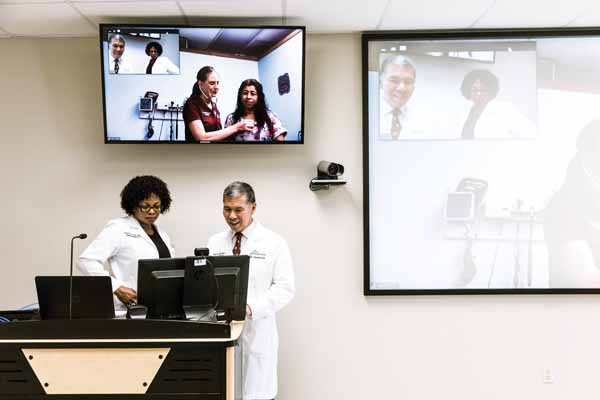
Amid fluid telemedicine-related activity in Austin, the Texas Medical Association is continuing its efforts to advance telehealth in Washington, D.C., as well.
In a recent letter to Republican U.S. Sens. John Cornyn and Ted Cruz, TMA President Diana Fite, MD, urged the Texas lawmakers to support the federal Telehealth Modernization Act, introduced in February by Sen. Tim Scott (R-S.C.). It would permanently remove Medicare restrictions requiring that patients using telemedicine services live in a designated rural area and use the services at a doctor’s office or certain other clinical sites. Known as the “geographic and originating site” restriction, it was temporarily relaxed as a result of the COVID-19 pandemic, allowing all Medicare patients to have telemedicine visits from home.
In the April 29 letter, TMA told Senators Cornyn and Cruz that the bill seeks to protect telehealth access in rural and underserved areas.
“Under current law, Medicare is prohibited from covering and paying for telehealth services delivered via two-way audio-visual technology unless it is provided at an eligible site in a rural area. This forces patients to needlessly travel to an eligible originating site to receive telehealth services, with a few exceptions,” Dr. Fite’s letter explained. “Current law essentially bars Medicare beneficiaries from using widely available two-way audio-visual technologies to access covered telehealth services unless they live in a rural area.
“As widely declared, the one silver lining of the COVID-19 pandemic is the widespread adoption of telemedicine by physicians and patients. TMA supports telecommunications systems that provide physicians with resources that enhance health care delivery.”
Austin psychiatrist Thomas Kim, MD, told Texas Medicine that restricting telemedicine based on a person’s location has a restricting effect on patient care as well. Last week, Dr. Kim testified before the U.S. House Ways and Means Committee’s Health Subcommittee as it considered future policy on telehealth. He told the subcommittee that telemedicine is about having “the right doctor with the right information at the right time.”
“When you empower your doctor with telehealth … it empowers them to be of service in between conventional encounters, as well as during an encounter, thereby increasing the value of care,” Dr. Kim said this week. “Prohibiting them from taking care of their patients, strictly on the artificial requirement of where people happen to be, limits the ability of your doctor to care for you.”
The Telehealth Modernization Act has bipartisan support in the Senate, with three members of each party and one independent senator cosponsoring the bill. A separate Telehealth Modernization Act in the House, introduced by Rep. Earl L. “Buddy” Carter (R-Ga.), also has bipartisan support, with 28 cosponsors.